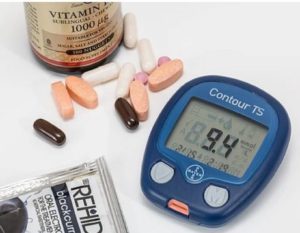
The researchers at a university in the US have paved the way for diabetes and cancer patients to manage their ailments without the use of needles and injections and only by using pills . Few drugs from these diseases dissolve in water, making it impossible to carry them through the intestines , which process food and drink.
As a result, these drugs cannot be administered by mouth.
The scientists at the University of California in Riverside have created a chemical “tag” that can be added to these drugs, allowing them to enter blood circulation via the intestines.
A little peptide, which resembles a protein fragment, makes up the tag. “Because they are relatively small molecules, you can chemically connect them to pharmaceuticals, or other molecules of interest, and use them to deliver those drugs orally,” said Min Xue, a UCR chemistry professor who led the research.
“We did not expect to find this peptide making its way into cells. It took us by surprise,” Xue said. “We always wanted to find this kind of chemical tag, and it finally happened serendipitously.”
This observation was unexpected, Xue said. The researchers believe that such types of delivery tags are needed to carry positive charges to be accepted into the negatively charged cells. Their work with this neutral peptide tag, called EPP6, shows that belief was not accurate.
Using a PET scan, a technique similar to a whole-body X-ray that is available at USC, the team observed the peptide accumulating in the intestines and documented its ultimate transfer into the animals’ organs via the blood. Festing the peptide’s ability to move through a body, the Xue group teamed up with Kai Chen’s group in the Keck School of Medicine at the University of Southern California and fed the peptide to mice.
Having proven the tag successfully navigated the circulatory systems through oral administration, the team now plans to demonstrate that the tag can do the same thing when attached to a selection of drugs. “Quite compelling preliminary results make us think we can push this further,” Xue said.
“This discovery could lift a burden on people who are already burdened with illness,” Xue said.




 Driving Naari Programme launched in Chandigarh
Driving Naari Programme launched in Chandigarh






























